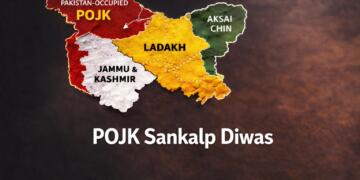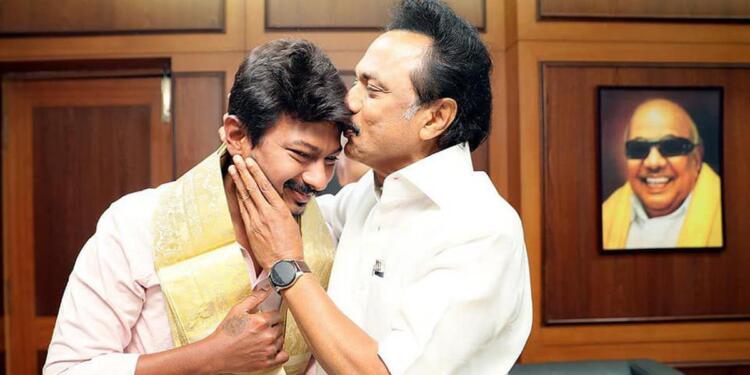The Dravida Munnetra Kazhagam (DMK), led by Chief Minister M.K. Stalin, has once again resorted to its age-old tactic of stoking language wars and divisive politics to divert attention from its abysmal governance and administrative failures in Tamil Nadu. As the state grapples with rising debt, crumbling infrastructure, and a deteriorating law and order situation, the DMK government is busy fanning the flames of linguistic and cultural divides to mask its incompetence. This strategy, however, is not new. The DMK has a long history of using language as a political tool to polarize and distract, but this time, the stakes are higher as the state’s financial and social fabric teeters on the brink of collapse.
The DMK’s recent attempts to reignite the Hindi vs. Tamil debate are a calculated move to shift the narrative away from its governance failures. By raising the bogey of Hindi imposition and portraying itself as the sole protector of Tamil pride, the DMK is trying to rally its voter base while ignoring the pressing issues plaguing the state. The party’s leaders, including Chief Minister Stalin and his son Udhayanidhi Stalin, have been vocal in their opposition to Hindi, often making inflammatory statements that pit the North against the South. This divisive rhetoric is not just aimed at consolidating Tamil sentiment but also at creating a smokescreen to hide the government’s inability to address real issues.
For instance, Udhayanidhi Stalin’s recent comparison of Sanatana Dharma to diseases like dengue and malaria was not just an attack on Hinduism but also an attempt to polarize the electorate along religious and linguistic lines. Similarly, DMK leaders have repeatedly raised the issue of delimitation, warning that Tamil Nadu could lose Lok Sabha seats, thereby stoking fears of reduced political representation. These tactics are designed to create a sense of victimhood among Tamilians, distracting them from the government’s failures in governance, economy, and public safety.
Tamil Nadu’s Debt Crisis: A Legacy of Mismanagement
While the DMK government is busy playing the language card, Tamil Nadu’s financial health is in shambles. The state has emerged as the most indebted in India, with its debt-to-GDP ratio soaring to alarming levels. According to recent data, Tamil Nadu’s debt has skyrocketed to over ₹7 lakh crore, making it the highest among all Indian states. This staggering debt burden is a direct result of the DMK government’s reckless spending and mismanagement of resources.
The Tamil Nadu Generation and Distribution Corporation (Tangedco), for instance, has accumulated losses of over ₹1.62 lakh crore, the highest for any state power utility in the country. Despite multiple tariff hikes, the company continues to bleed money due to inefficiencies and mismanagement. The state’s power sector is a microcosm of the larger governance crisis under the DMK, where populist policies and lack of accountability have led to financial ruin.
Moreover, the DMK government’s inability to curb wasteful expenditure and implement fiscal reforms has exacerbated the debt crisis. Instead of focusing on reviving the economy and creating jobs, the government has prioritized populist schemes and freebies, further straining the state’s finances. The result is a vicious cycle of borrowing and spending, with little to show in terms of development or public welfare.
Law and Order: A State in Chaos
The DMK government’s failures are not limited to the economy. The state’s law and order situation has also deteriorated significantly under its watch. Tamil Nadu has witnessed a sharp rise in crimes against women and children, with several high-profile cases of sexual assault and harassment making headlines. In recent months, there have been multiple instances of teachers and school staff sexually abusing students, exposing the government’s failure to ensure the safety of children in educational institutions.
Also Read: Tamil Nadu’s Unchecked Crisis: DMK’s Governance, Crime Surge, and the Silent Outrage
The drug menace in the state has also reached alarming proportions, with Tamil Nadu emerging as a hub for narcotics trafficking. The arrest of high-profile individuals, including the son of a former Director General of Police, in drug-related cases highlights the extent of the problem. Despite repeated warnings and evidence of widespread drug abuse, the DMK government has failed to take decisive action, allowing the crisis to spiral out of control.
Environmental Degradation and Illegal Mining
The DMK’s governance failures extend to environmental protection as well. The state has been rocked by scandals involving illegal mining of beach sand minerals, including thorium, which poses a serious threat to national security. The Madras High Court has ordered a CBI probe into the illegal mining activities, which have caused massive revenue losses and environmental damage. The involvement of politicians and bureaucrats in these illegal operations points to a deep-rooted nexus of corruption and cronyism within the DMK government.
The DMK’s strategy of using language and cultural issues to divert attention from its governance failures may yield short-term political gains, but it is unlikely to work in the long run. The DMK government must focus on delivering good governance and addressing the pressing issues facing the state. This includes implementing fiscal reforms, cracking down on corruption, and ensuring the safety and security of its citizens.


























